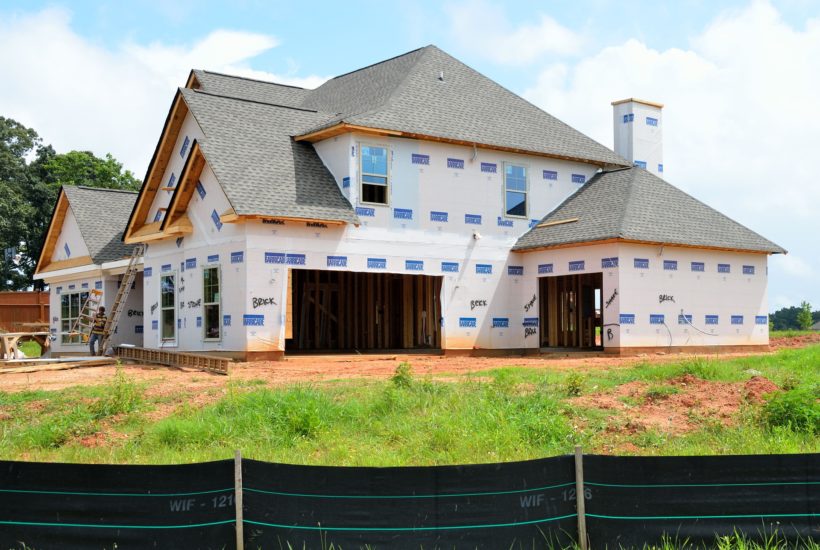Crowdfunding
How is the real estate crowdfunding sector coping with the COVID-19 crisis
Now more than ever, investors need to be much more vigilant in the selection of programs to invest in, beyond the filtering carried out by the platforms. Koregraf emphasized that, in order to prevent any risk of slippage in the duration of the projects financed, all its investment contracts are historically established over a 3-year term, longer than the average repayment period of 19 months.

In parallel with the new housing construction market, in which it participates in the financing, the real estate crowdfunding sector took a break at the start of the health crisis but soon picked up again. In any case, earlier than the construction sites, which at the moment remain largely at a standstill even if they are gradually resuming.
Read more about the real estate crowdfunding sector and why now might still be a good time for investors to invest in it with the Born2Invest mobile app. Discover the most important business headlines with the best online aggregator.
Collections have started again
Jérémie Benmoussa, Chairman of the Management Board of the Fundimmo platform said that: “After the announcement of the containment, we suspended our collections for about 10 days to analyze the situation in relation to our promoter partners and recalibrate our operations. Since the beginning of April, we have seen the resumption of certain projects and a significant return of investors to our platform with the announcement of the gradual deconfinement.”
Similarly, other platforms such as Koregraf or Immocratie have quickly resumed their collections in recent weeks, but with reinforced project selection criteria.
The real estate crowdfunding parameters will be changed
The success of these recent collections showed that investors are still present and do not want to deprive themselves of returns that continue to hover around 10% (before tax). However, it should be stressed that new obstacles will change the parameters of real estate crowdfunding.
It is to be expected that repayment periods will be extended because, in addition to the delays already accumulated for works in progress, building sites will take longer to complete with improved sanitary conditions. The new organization of the building sites could also be a source of additional costs. As regards the marketing of housing, it is reasonable to expect longer deadlines with increased difficulties in obtaining credit and hence cancellations of reservations.
Vigilance points investors should bear in mind
Without being alarmist, it is therefore necessary to be much more vigilant in the selection of programs to invest in, beyond the filtering carried out by the platforms. For example, it is important that investors avoid exposure to programs aimed mainly at first-time buyers or low-income households, which are likely to be affected by the tightening of credit conditions. Especially in less tense geographical areas where demand is less strong.
It should also be borne in mind that small promoters who do not have strong equity capital may find it difficult to get through the current crisis. Favoring high marketing rates is undoubtedly a guarantee of greater security. Beware also of property merchant operations which, although they have the advantage of being little affected by complex construction phases, can be weakened by a fall in property prices.
Longer repayment terms for projects launched in the last 12 months
Fundimmo stated that certain projects launched in the last 12 months could show a delay in repayment in relation to the maturity date initially planned. Although, it will stick within their maximum contractual period of 6 months, during which the interests of investors continue to accrue to make their investment grow.
Fundimmo also said that the 2-month construction stoppage and the delay in resuming marketing should result in a delay of up to 4 months on some of these projects. A delay that the platform and its committee are nevertheless pleased to have always anticipated in their analysis. It has always been favoring longer commitment periods, taking into account the actual duration of the operations and the incompressible delays linked to real estate.
Koregraf emphasized that, in order to prevent any risk of slippage in the duration of the projects financed, all its investment contracts are historically established over a 3-year term, which is much longer than the average repayment period of 19 months. “We already have the means to withstand longer construction periods for an average of more than a year without putting investment at risk,” emphasizes Vincent Sillègue, President of Koregraf.
__
(Featured image by paulbr75 via Pixabay)
DISCLAIMER: This article was written by a third party contributor and does not reflect the opinion of Born2Invest, its management, staff or its associates. Please review our disclaimer for more information.
This article may include forward-looking statements. These forward-looking statements generally are identified by the words “believe,” “project,” “estimate,” “become,” “plan,” “will,” and similar expressions. These forward-looking statements involve known and unknown risks as well as uncertainties, including those discussed in the following cautionary statements and elsewhere in this article and on this site. Although the Company may believe that its expectations are based on reasonable assumptions, the actual results that the Company may achieve may differ materially from any forward-looking statements, which reflect the opinions of the management of the Company only as of the date hereof. Additionally, please make sure to read these important disclosures.
First published in BOURSE.COM, a third-party contributor translated and adapted the article from the original. In case of discrepancy, the original will prevail.
Although we made reasonable efforts to provide accurate translations, some parts may be incorrect. Born2Invest assumes no responsibility for errors, omissions or ambiguities in the translations provided on this website. Any person or entity relying on translated content does so at their own risk. Born2Invest is not responsible for losses caused by such reliance on the accuracy or reliability of translated information. If you wish to report an error or inaccuracy in the translation, we encourage you to contact us.

-

 Africa1 week ago
Africa1 week agoBLS Secures 500 Million Dirhams to Drive Morocco’s Next-Gen Logistics Expansion
-

 Fintech2 weeks ago
Fintech2 weeks agoRipple Targets Banking License to Boost RLUSD Stablecoin Amid U.S. Regulatory Shift
-

 Impact Investing3 days ago
Impact Investing3 days agoSustainable Investments Surge in Q2 2025 Amid Green and Tech Rebound
-

 Biotech1 week ago
Biotech1 week agoBiotech Booster: €196.4M Fund to Accelerate Dutch Innovation

























